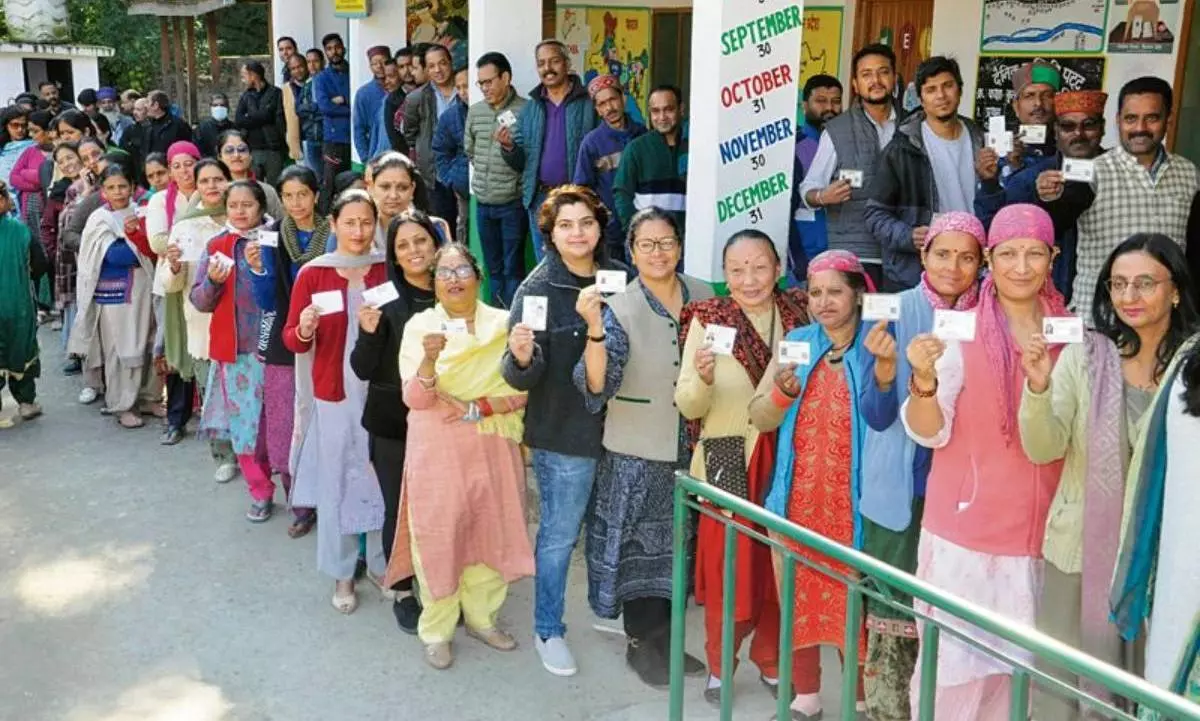
EC may not have obligation, but people do: Critics on denial of voter turnout data
text_fieldsThe Election Commission (EC)'s submission before the Supreme Court that it is not obligatory for it to disclose the voter turnout data to the public, in response to a plea filed by the Association for Democratic Reforms (ADR) and Common Cause for its failure to do so in the ongoing Lok Sabha elections, drew criticism from both rights activists and political pundits.
The EC argued that it lacks a legal mandate to divulge authenticated voter turnout data based on Form 17C, citing concerns over potential misuse of the disclosed data.
The crux of the EC's argument lies in the absence of a statutory obligation to share Form 17C data with entities other than candidates or their agents, emphasizing that the current legal framework doesn't require public disclosure and raising apprehensions regarding the vulnerability of Form 17C data to manipulation and the subsequent erosion of electoral integrity.
Critics, however, slammed the EC's stance, labelling it as an affront to transparency and democratic principles. According to a transparency rights activist, the people have a right to information in a democratic setup, pointing out that Rule 93 of the Conduct of Election Rules permits citizens to inspect and obtain copies of election papers, including Form 17C.
Former IAS officer Kannan Gopinathan echoed similar sentiments, cautioning against the perils of excessive secrecy in governance. He contended that secrecy fosters suspicion, undermining the foundation of democratic governance.
The EC's handling of voter turnout data has drawn widespread criticism, with concerns raised over delays in publication and discrepancies between initial and final figures. Former Chief Election Commissioner S.Y. Quraishi criticized the Commission for the significant lag in finalizing voter data, urging accountability for the delays.
Analysis by the Times Insight Group revealed substantial disparities between real-time and final figures, sparking further concerns about the transparency and integrity of the electoral process.
Political figures have also joined the chorus of criticism against the EC's approach. Congress leader Pawan Khera expressed dismay over the prolonged delays in releasing final voter turnout figures and the substantial discrepancies observed. He characterized the situation as unprecedented, calling attention to the growing unease among voters regarding the integrity of the electoral process.
Tamil Nadu Information Technology & Digital Services Minister P. Thiaga Rajan questioned the EC's decision to cease publishing detailed Form 17 data. He highlighted the logistical challenges faced by candidates, particularly smaller parties and independents, in collating and analyzing extensive data sets.
Rajan emphasized the importance of transparency in upholding democratic norms, urging the EC to reconsider its approach to data disclosure.
As the debate over voter turnout disclosure intensifies, the EC finds itself at the centre of a contentious legal and public discourse, grappling with demands for greater transparency and accountability in the electoral process.























